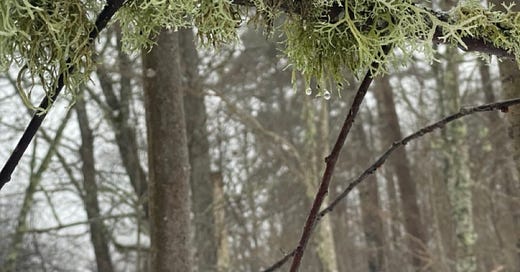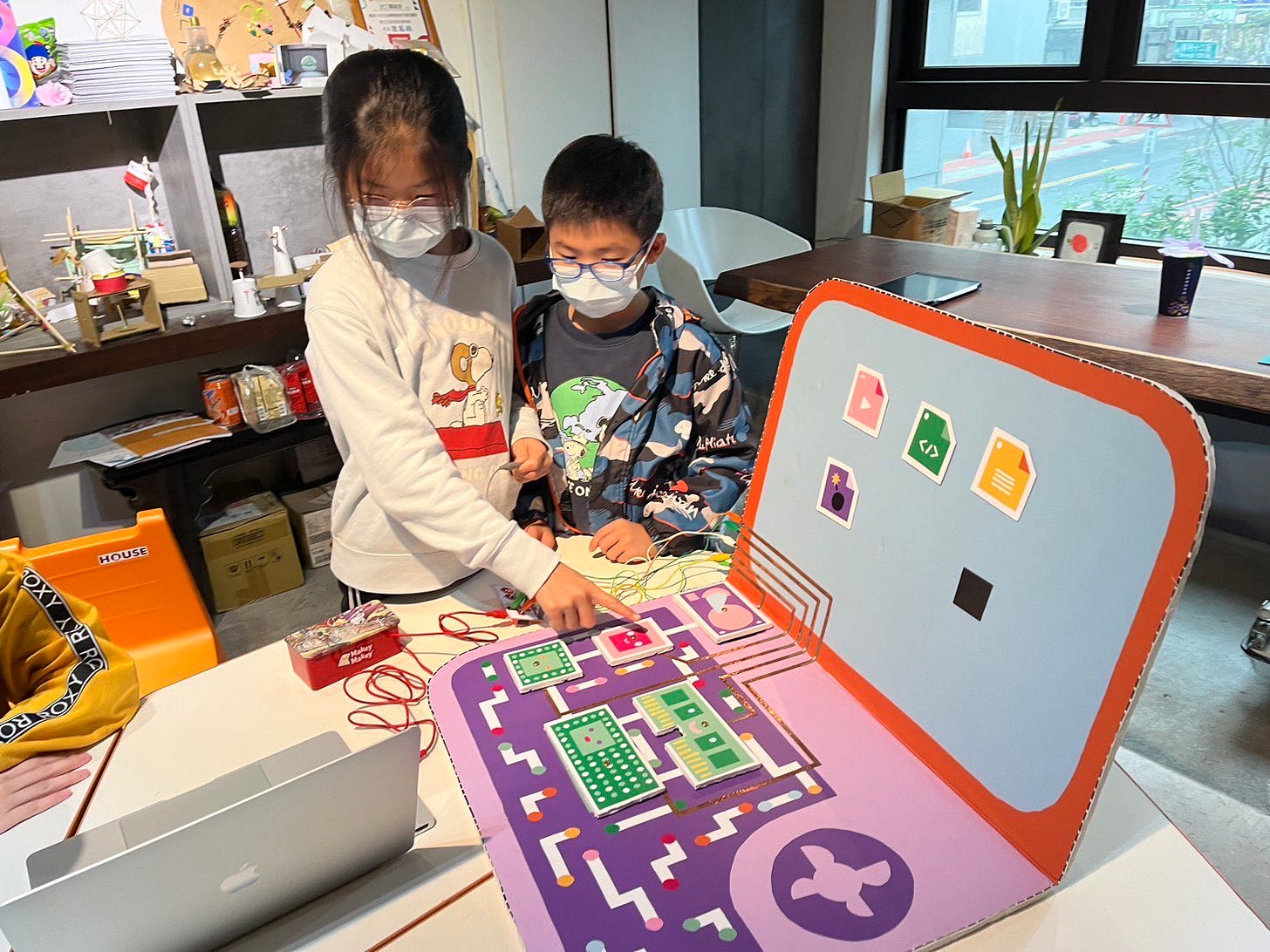My name is Linda. I write a bi-weekly (well, honestly, more like monthly) newsletter about computer science, childhood, and culture - and 9 673 of you are listening. If you enjoy this issue, please share it with anyone who may find it helpful.
This week - answers to the AMA. Some Murakami wisdom, tips on reading non-fiction, the power of RSS and museums, ideas for visiting Paris with children, Björk, and pondering on Rails Girls.
How would you describe your vocation?
I read Haruki Murakami’s Novelist as a Vocation, and two sentences stuck with me. “One opposite of imagination is ‘efficiency,’” he says. And then, in a different place, he continues, “What we call the imagination consists of fragments of memory that lack any clear connection with one another.”
My vocation is to think inefficiently about childhood and computers, not through the language of commerce or technology, but through the language of stories, fingertips, poems, buildings, memories.
How did you develop such broad reading interest? I struggle with non-fiction! Tips?
Working with education is terrific because whatever I am reading (fiction or non-fiction), I will always find small ideas and snippets of secrets, just bouncing around and waiting to be discovered. Work gives a framework for my reading and makes it feel like a treasure hunt, as opposed to leisurely pleasure or mandatory studying. (Both are excellent reasons for reading, but my most sustained motivation is curiosity.)
What inspires you the most every single morning?
Coffee! I’m a morning person, but I need coffee and 15 minutes of quiet time before even thinking about getting inspired.
What are your go-to places (virtually or in real life) to get inspiration?
Virtual. I still use RSS! After 10 years, it’s almost silly how often I start my day browsing through favorite blogs and other feeds, and most of my ideas come from this habit, not from Instagram, Twitter, Pinterest, or some other algorithmic feed. More recently also have newsletters, but even then, I order through RSS if possible. I used to be an avid Google Reader user, now replaced with Feedly. My vintage setup is finished with Pinboard. (I have been eyeing Are.na for a while now)
Real life. I like museums, cities, forests and the sea.
How does a working day of you look like? Do you approach a new theme?
Björk has said something about how one has to dig a cave into the future and demand space, to invent, knit or embroider a world. “it’s a territorial hope affair. at the time, that digging is utopian but in the future it will become your reality.”
I think it’s a bit like that. It’s a lot of internal conversation, figuring out what great looks like mashing things together that don’t really stick and trying to squint my eyes and see. And, of course, balancing all this freewheeling, time-consuming, maybe-something-comes-out-of-this with the work that allows me the financial freedom to have workdays like these.
Visiting Paris from Stockholm with two kids (6 years and 16 months). Do you have any family-friendly ideas in or on the way to Paris?
I like: going to a neighbourhood boulangerie and ordering croissants; letting the kids choose three different cheeses at the fromagerie; the Nelson Mandela park in the 1ere and the climbing walls and balancing boards along Parc Rives de Seine; Que Faire a Paris / Enfants; an activity book like First Sticker Book Paris by Usborne before arriving; Jardin D’Acclimation for pony rides, obstacle courses, farm animals; visiting one of the food markets (like Matrche aux Enfants Rouges) and letting each kid choose a vegetable; MyLittleKids; selecting a new outfit/headband/socks at one of the French children’s clothing stores like Bonpoint, Jacadi, Petit Bateau, Smallable, Bonton; La Librairie des Enfants (FR) or Red Wheelbarrow (EN) and picking up a picture book; being fancy at the Ladurée tea room; taking the funiculare up to Montmartre and walking down the small streets; taking Amelie style photobooth pictures at almost any of the big metro stations; hot chocolate and a treat at one of the bistro terraces; for contemporary art Bourse, their map for kids and afterwards a lunch at La Halle aux Grains; for classics, Musee D’Orsay, a self-guided family tour and later browsing Les Petits MOs.
(With a 16 month old - the restaurants often have small bathrooms in weird, downstairs locations, but personnel is always accomodating. Big department stores for changing diapers! The metro doesn’t have lifts, so the strollers must be carried. Again, people help!)
Are there major differences on how kids from different cultures approach logical puzzles? What sort and if so at what are those approaches learnt?
I have no idea, but this is one of the reasons I love the AMA format - now I will be on the lookout for any answers to this.
More broadly, it’s surprising how little we know about teaching logic (or more specifically my field computer science). And I mean know in the researched, backed up by peer-reviewed papers kind of way.
One recent initiative I’m extremely curious about is the Rasberry Pi Computing Education Research Center with the goal to increase our understanding of teaching and learning computing, computer science, and associated subjects. Rasberry Pi foundation has also a long history on supporting research in this area and their seminars are wonderful, very international and free to attend.
How do you perceive Rails Girls and their impact? Is there anything you would have done differently? I attended the first edition in Kraków in 2012 <3
I’m proud of everything Rails Girls achieved, how it spread in so many cities and gave a way to organise events in ways that were novel at the time. I think we did many things right.
The communications were friendly and approachable, with reassurance that there is a place in the Ruby community for beginners, you belong. We reached out to the local Ruby communities and helped expand already existing ecosystems instead of trying to force our own structure. The format was simple, but celebrated the ability to quickly build something the participants could share and spark their interest. And on a more personal note Rails Girls helped me launch my career with Hello Ruby and formed some lifelong friendships (not least from Krakow!).
However, I’m glad I didn’t stay in the diversity in tech space or try to somehow build Rails Girls into a structure with more longevity, funding and scale. So much of the magic was in the volunteer work done by the local Ruby communities. Also, times were much simpler and I recognise everything starting from the name would today look different. I think there is beauty in balancing the impermanence, allowing for change and creativity of emerging new structures.
Or, like Walt Whitman noted, “That the powerful play goes on, and you may contribute a verse.”
Linked List
In computer science, a linked list is a linear collection of data elements whose order is not given by their physical placement in memory. But here it is a selection of things I’ve been reading lately.
Hayao Miyazaki’s new film How Do You Live has a release date - “Kimitachi wa Dou Ikiru ka” is set to premiere in Japan on July 14, 2023. I read the 1937 book by Yoshino Genzaburo last year when it was first translated into English. It would make a wonderful Christmas gift for any young reader with a philosophical streak.
I like obscure videos that feel like finding a little gift others have overseen (cue in Astronaut.io, which plays a few seconds of random YouTube videos with almost no views). Anyways, Birth of Binary isn’t even on YouTube, it’s on Google Drive - it’s a lecture from Oslo on the Birth of binary numbers, from Leibniz to Von Neumann and the various threads of stories related. There are some audio problems in the beginning, skip to 8:40 to get going.
Escher Circuits: Using Vision to Perform Computation. A fascinating story on how the eye can make sense of complex relationships that often mystify the brain and how we might be able to trick the eye into performing computation. Belongs to
Classroom
I’m hoping to surface and share stories from all of you and I’d love to see your creations! Here are a few teachers using Ruby in creative, fun and inspiring ways.
STEAMLabTaiwan has built many wonderful projects and curriculum around Hello Ruby.
Last week I found these joyful pictures from a workshop they organised on the hardware and software in computers. Hoping I could return to Taiwan one day to see these in action!









RSS. Oh yes. I wish more people added that to their blogs.